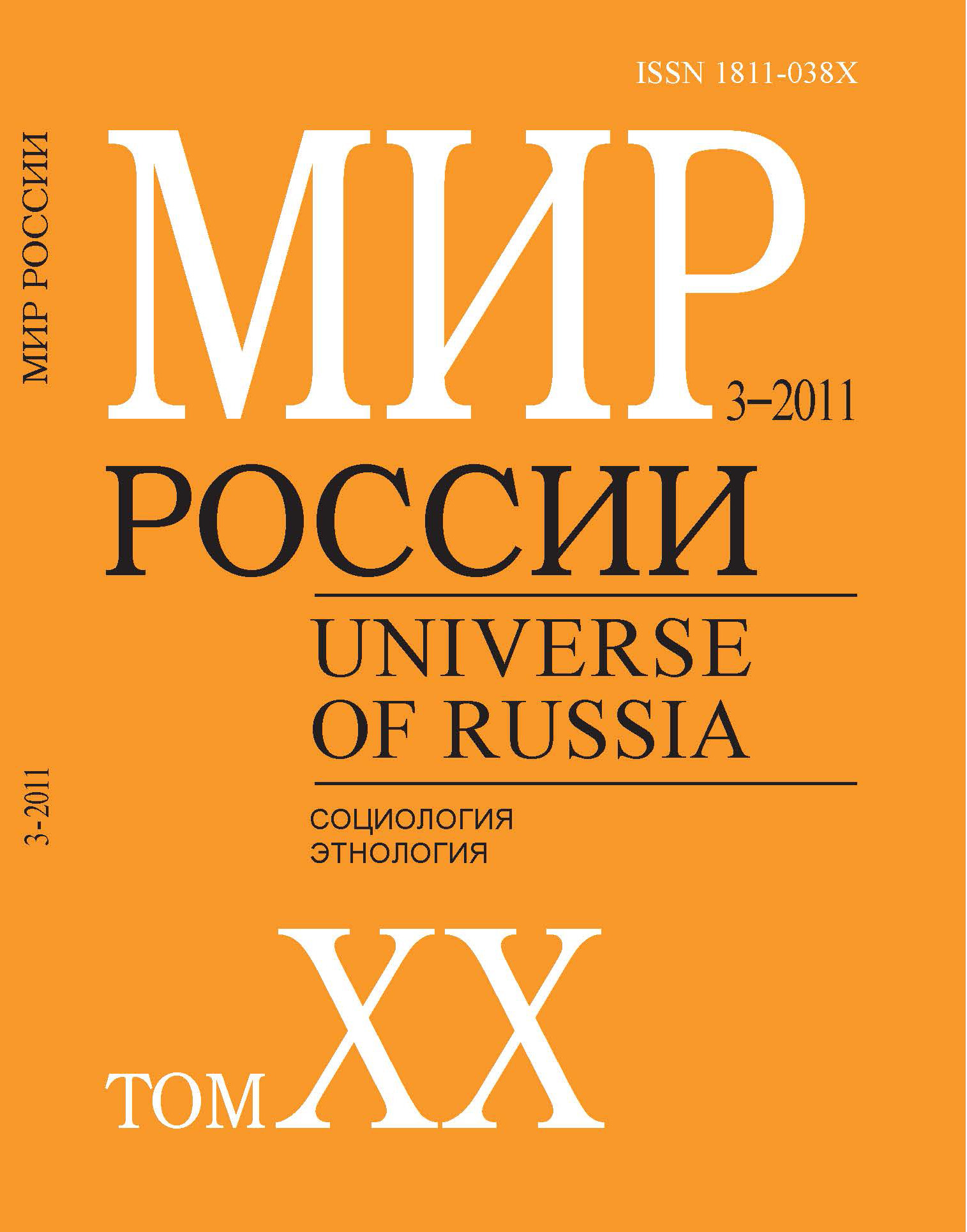Social Quality as a Source for Statehood Survival
Abstract
Sergey Magaril — Associate Professor, Russian State Humanitarian University. Address: 6, Miusskaya Sq., Moscow, GSP-3, 125993, Russian Federation. E-mail: magaril@yandex.ru
This article reveals a typological similarity of Russia’s socio-historical process based on the analysis of historical events of the late 20th and beginning of 21st centuries. It is argued that with all the differences that have distinguished the changing political regimes in Russia, its dominant feature has always been a so-called ‘police-ridden state’. Moreover, Russian history provides enough evidence that ‘police’ have never been a good social integrator. While the Russian Empire was ruled by the representatives of the privileged class, the Soviet Union was ruled by the representatives of the common people. However, in both cases, the state fell. This fact points to the low quality of strategic nation-state government and denotes the invariant socio-cultural basis of society.
Russia was unable to find efficient solutions to most of its historical challenges because of the general intellectual deficit. In the beginning of the 20th century, the number of educated people was obviously too low to provide the required quality of strategic management. On the other hand, in the late 20th century, with all the millions of professionals in science and engineering, there was a serious lack of people with rational socio-humanitarian knowledge. Without this, however, it was simply impossible to establish efficient relations between society and its power-holders.
There is absolutely no doubt that a political regime which cannot sustain national development and, thus, provide for Russia’s inter-state competitiveness, will inevitably fall. The nature and scale of the conflicts that would precede such fall are, however, uncertain: would it be a full-scale civil conflict similar to the one at the beginning of the 20th century? Or would it be a series of local conflicts like in the late 20th? In both cases, Russian society had to spare a large number of human lives for its inability to modernize gradually. Furthermore, the very genesis of a new Russian statehood poses serious threats: the life cycle of each of its subsequent versions has been steadily reducing. All of the above questions the historical sustainability of the post-Soviet Russia.
A methodological approach promoted here is based on an integral indicator of ‘social quality’, i.e. the ability of large social groups to contribute to society’s own survival, development and well-being. The study of tendencies in contemporary Russia with the use of this indicator provide the following evidence: macro-social strategies of the major social groups in Russia lead to disorganization and the disintegration of state. The political and administrative elites are completely stupefied by the billions lost to corruption.
The mass strata, those who feel unable to influence the policy of the ruling elites, deny any responsibility for the current situation in Russia. Moreover, a politically and socially disorganized Russian intelligentsia seem to be unable to withstand the amorality of the top classes as well. To sustain its own well-being, the intelligentsia is simply bound to adapt by getting itself involved in corruption.
It is well known that the way of thinking shapes certain patterns of conduct; thus, a mass way of thinking shapes mass behavior. Official Soviet social science forcedly shaped the mass consciousness, driving it from one utopia to another: the expectation of a worldwide revolution; the construction of socialism; the rise of communism, etc. However, history had its own verdicts for all of these ‘projects’. Nevertheless, this long-lasting program of cultivating irrationalism has had serious effects on the well-being of Russian society at the beginning of the 21st century. Thus, one of the most important challenges for contemporary Russian socio-humanitarian sciences is to produce and inoculate rational and critical knowledge in society. This implies a tough and uncompromising debate with those who continue to manipulate the public opinion out of their cynical and selfish purposes.
The only way to interrupt the decomposition of Russian statehood, to make it historically more stable, is the promotion of a political and legal culture in society, the introduction of real political competition as a basic condition for coordination of social interests.






